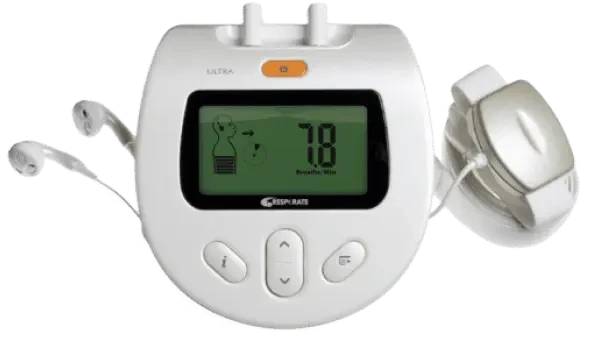In the realm of aviation, pilots are the guardians of our skies, entrusted with the responsibility of safely ferrying passengers to their destinations. Their role demands peak physical and mental fitness, ensuring optimal performance during flights. However, amidst the rigorous demands of their profession, commercial pilots face health challenges that can potentially jeopardize flight safety.
One such concern is hypertension, a condition that affects millions worldwide. In this blog, we delve into the intricate relationship between commercial pilots and hypertension, exploring its implications and avenues for management.
Understanding Hypertension:
Hypertension, commonly known as high blood pressure, is a prevalent medical condition characterized by elevated blood pressure levels in the arteries. It’s often asymptomatic, earning its moniker as the “silent killer” due to its potential to cause serious health complications such as heart disease, stroke, and kidney failure if left uncontrolled. Contributing factors to hypertension include genetics, lifestyle choices, diet, and stress.
The High-Stakes Profession of Commercial Pilots:
For commercial pilots, maintaining optimal health is not just a personal concern but a matter of public safety. The demands of their profession are unique, encompassing long hours, irregular schedules, and exposure to high-altitude environments. Moreover, the stress inherent in ensuring the safety and comfort of passengers can further exacerbate health issues, including hypertension.
The Impact of Hypertension on Pilots:
Hypertension poses multifaceted challenges for pilots, ranging from regulatory compliance to operational safety. The Federal Aviation Administration (FAA) and other aviation authorities worldwide have stringent medical standards that pilots must meet to obtain and retain their licenses. Hypertension, if uncontrolled, can disqualify pilots from flying or necessitate rigorous monitoring and treatment.
Beyond regulatory concerns, hypertension can impair pilots’ performance in subtle yet significant ways. Elevated blood pressure levels may lead to fatigue, decreased cognitive function, and impaired decision-making abilities, all of which are critical during flight operations. Moreover, the potential side effects of anti-hypertensive medications, such as dizziness or fatigue, further complicate the picture.
Managing Hypertension in the Cockpit:
Effective management of hypertension is paramount for the well-being of commercial pilots and the safety of air travel. This involves a multifaceted approach encompassing lifestyle modifications, pharmacological interventions, and regular medical monitoring.
- Lifestyle Modifications: Pilots are encouraged to adopt heart-healthy habits such as maintaining a balanced diet, engaging in regular exercise, managing stress effectively, limiting alcohol intake, and avoiding tobacco use. These lifestyle changes can help reduce blood pressure levels and mitigate the risk of complications.
- Pharmacological Interventions: In cases where lifestyle modifications alone are insufficient to control hypertension, pharmacotherapy may be warranted. However, the choice of medication is crucial, considering its potential impact on pilots’ performance and the need to minimize side effects. Pilots must work closely with aviation medical examiners and healthcare providers to find the most suitable treatment regimen while adhering to regulatory requirements.
- Regular Medical Monitoring: Pilots with hypertension require regular medical evaluations to assess their cardiovascular health and ensure compliance with regulatory standards. This may involve periodic check-ups, laboratory tests, and cardiovascular assessments to detect any changes in blood pressure or associated risk factors.
RESPeRATE For Managing Hypertension:
RESPeRATE is the only FDA cleared medical device that is designed to help lower blood pressure naturally. RESPeRATE lowers blood pressure by relaxing constricted blood vessels which cause high blood pressure. The device does so by harnessing the therapeutic power of slow-paced breathing with prolonged exhalation in a way that is virtually impossible to achieve on your own.
It is a small, portable medical device that can be used at home, or the office, to help individuals control their blood pressure. Furthermore, working with their doctors, many RESPeRATE users have been able to avoid additional medications, reduce dosage, and in some cases eliminate them. And because it is a non-medication approach to lowering hypertension you do not need to worry about side effects.
Conclusion:
The intersection of commercial aviation and hypertension underscores the complex interplay between health, safety, and regulatory compliance. While hypertension poses significant challenges for pilots, proactive management strategies can help mitigate risks and ensure continued flight safety.
By prioritizing cardiovascular health through lifestyle modifications, appropriate medication, and regular monitoring, pilots can navigate the skies with confidence, safeguarding both themselves and the passengers entrusted to their care.
Ultimately, in the high-stakes world of commercial aviation, the well-being of pilots and the safety of air travel are inextricably linked, making the management of hypertension a critical priority for all stakeholders involved.

 Eli Ben-Yehuda
Eli Ben-Yehuda 










 Download Brochure
Download Brochure
Comments